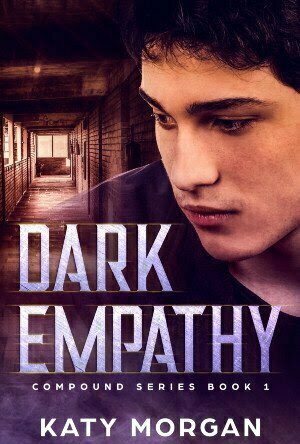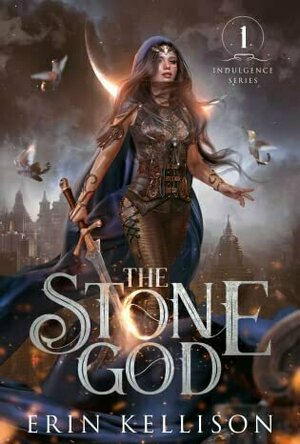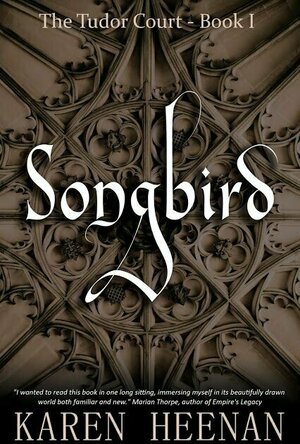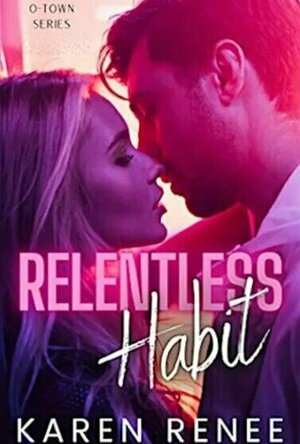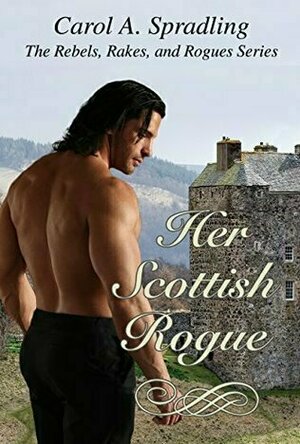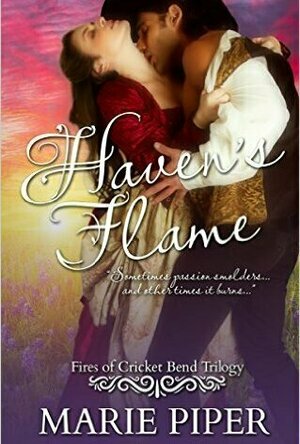Search
Search results
Merissa (13786 KP) rated Dark Empathy (Compound Series #1) in Books
Jan 18, 2022
DARK EMPATHY is the first book in an action-packed world where some people have special abilities. It's not all good though, as they can be captured and taken to The Compound, where they will be assessed and who knows what else...
Henry is a Captain of a Retrieval Team and is sent to capture an escaped asset, Bastian, an empath. Empaths are exceedingly rare but, as Henry and Bastian find out, Bastian is not the only one.
This story is full of twists and turns, although the big bad is identified easily enough. It's more the machinations of the Compound, and the people within it, that make this story so interesting.
There is a slight romance between Henry and Bastian but it doesn't take over the book. In fact, they go from being colleagues to declaring love. This is definitely an action book first and foremost.
One thing I would say is that internal thoughts and monologues are written within parentheses, instead of italics as is more common. Once I became used to this, it was okay, but it did throw me for a while.
On the whole, this was a thoroughly enjoyable book that gives the usual Sci-Fi Talents a twist that I have no hesitation in recommending.
** same worded review will appear elsewhere **
* A copy of this book was provided to me with no requirements for a review. I voluntarily read this book, and the comments here are my honest opinion. *
Merissa
Archaeolibrarian - I Dig Good Books!
Henry is a Captain of a Retrieval Team and is sent to capture an escaped asset, Bastian, an empath. Empaths are exceedingly rare but, as Henry and Bastian find out, Bastian is not the only one.
This story is full of twists and turns, although the big bad is identified easily enough. It's more the machinations of the Compound, and the people within it, that make this story so interesting.
There is a slight romance between Henry and Bastian but it doesn't take over the book. In fact, they go from being colleagues to declaring love. This is definitely an action book first and foremost.
One thing I would say is that internal thoughts and monologues are written within parentheses, instead of italics as is more common. Once I became used to this, it was okay, but it did throw me for a while.
On the whole, this was a thoroughly enjoyable book that gives the usual Sci-Fi Talents a twist that I have no hesitation in recommending.
** same worded review will appear elsewhere **
* A copy of this book was provided to me with no requirements for a review. I voluntarily read this book, and the comments here are my honest opinion. *
Merissa
Archaeolibrarian - I Dig Good Books!
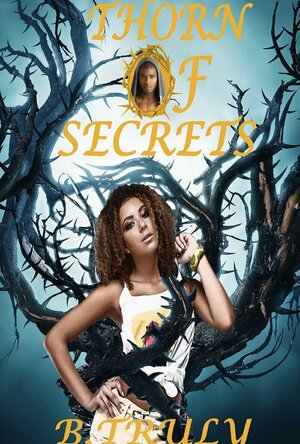
Thorn of Secrets (My Darkest Secret #2)
Book
In love with the same face that haunts me…. The falling leaves of autumn are like the deceit in...
Young Adult Romance Urban
Merissa (13786 KP) rated Christmas Wish List (Hartbridge Christmas #2) in Books
Nov 24, 2021 (Updated Jul 10, 2023)
CHRISTMAS WISH LIST is the second book in the Hartbridge Christmas series, and we land right back in the Hallmark Town, complete with previously known characters, as well as new ones.
Jayden has become a drifter, always working but living temporarily, and is looking for somewhere to call home. Cass has returned home and is determined to make his new business venture a success. The sparks are there, but will Jayden stay?
If book one was low angst, then this one is medium. Jayden doesn't automatically make the leap as Hamish did, and the idea of falling in love terrifies him. But Cass has a sweetness about him that is hard to resist. I loved how this was a slow burn, but high on the romance and the getting-to-know-you parts. Jayden made no attempt to hide his attraction, and seeing Cass react was the best part.
Another Christmas story, full of warm fuzzies, that makes you want to visit. The Christmas Tree Lighting Ceremony sounded wonderful, and I wanted to be there, especially for some of that brisket!
A great addition to the series that made me smile and fill up in equal measure. The only downside is I have to wait a year for the next one. Absolutely brilliant and recommended by me.
** same worded review will appear elsewhere **
* A copy of this book was provided to me with no requirements for a review. I voluntarily read this book, and the comments here are my honest opinion. *
Merissa
Archaeolibrarian - I Dig Good Books!
Nov 24, 2021
Jayden has become a drifter, always working but living temporarily, and is looking for somewhere to call home. Cass has returned home and is determined to make his new business venture a success. The sparks are there, but will Jayden stay?
If book one was low angst, then this one is medium. Jayden doesn't automatically make the leap as Hamish did, and the idea of falling in love terrifies him. But Cass has a sweetness about him that is hard to resist. I loved how this was a slow burn, but high on the romance and the getting-to-know-you parts. Jayden made no attempt to hide his attraction, and seeing Cass react was the best part.
Another Christmas story, full of warm fuzzies, that makes you want to visit. The Christmas Tree Lighting Ceremony sounded wonderful, and I wanted to be there, especially for some of that brisket!
A great addition to the series that made me smile and fill up in equal measure. The only downside is I have to wait a year for the next one. Absolutely brilliant and recommended by me.
** same worded review will appear elsewhere **
* A copy of this book was provided to me with no requirements for a review. I voluntarily read this book, and the comments here are my honest opinion. *
Merissa
Archaeolibrarian - I Dig Good Books!
Nov 24, 2021
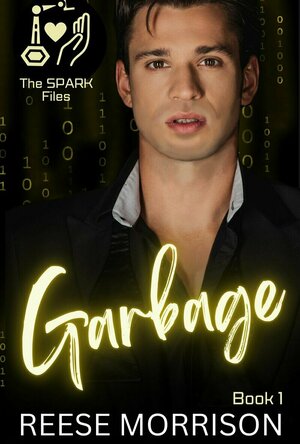
Garbage (The SPARK Files, #1)
Book
Evan isn’t brave. But when he hears a group of Human Firsters attacking a garbage collection...
MM Science Fiction Romance Hurt/Comfort
Merissa (13786 KP) rated The Stone God (Indulgence #1) in Books
May 26, 2021 (Updated Jul 26, 2023)
THE STONE GOD is the first book in the Indulgence series, where Gods walk the land and play their games, but cars, trains, machine guns, mobiles, and even condoms also live!
Terah has moved to the house she inherited so she can get her life back together again. Some peace sounds very good to her. Instead, a shrine is washed up (literally) and she is charged with taking care of it. Her life changes, in ways too many to mention. Although this is in the Romance genre, at this stage I honestly don't know who is the main male (although I have my own idea) - and I love that!
The pacing is fast and there is a lot that happens. Terah grows immeasurably in this story and still remains true to herself. She is prepared to help the Gods as long as they help her and had better not get in her way. If there were any editing or grammatical errors, I have to say I missed them, being engrossed in the story as I was.
There are pieces scattered all over the board by the end, and I honestly can't wait for book two to see where they will end up. A fantastic story that had me gripped from beginning to end. Absolutely recommended by me.
** same worded review will appear elsewhere **
* A copy of this book was provided to me with no requirements for a review. I voluntarily read this book, and the comments here are my honest opinion. *
Merissa
Archaeolibrarian - I Dig Good Books!
May 26, 2021
Terah has moved to the house she inherited so she can get her life back together again. Some peace sounds very good to her. Instead, a shrine is washed up (literally) and she is charged with taking care of it. Her life changes, in ways too many to mention. Although this is in the Romance genre, at this stage I honestly don't know who is the main male (although I have my own idea) - and I love that!
The pacing is fast and there is a lot that happens. Terah grows immeasurably in this story and still remains true to herself. She is prepared to help the Gods as long as they help her and had better not get in her way. If there were any editing or grammatical errors, I have to say I missed them, being engrossed in the story as I was.
There are pieces scattered all over the board by the end, and I honestly can't wait for book two to see where they will end up. A fantastic story that had me gripped from beginning to end. Absolutely recommended by me.
** same worded review will appear elsewhere **
* A copy of this book was provided to me with no requirements for a review. I voluntarily read this book, and the comments here are my honest opinion. *
Merissa
Archaeolibrarian - I Dig Good Books!
May 26, 2021
Merissa (13786 KP) rated Songbird (The Tudor Court #1) in Books
Apr 13, 2021 (Updated Jul 27, 2023)
SONGBIRD is the first book in the Tudor Court series, and we are introduced to the world of King Henry VIII, and his love of music. Bess is sold to the King just before her tenth birthday and, with hard study and lots of practice, becomes a favourite of his. We stay with her as she grows from a young child, to a young woman, with friends and lovers along the way.
Reading about Henry, Katherine, Mary, and the Boleyn sisters, from a servant's perspective made it all the more fascinating. Her life at court is comfortable, but she is still a servant. There is romance for Bess, from Tom, who was with her from the start, to Nick, a courtier currently in favour with the King. Bess has her own choices to make, some of which end up being heartbreaking.
If I had one thing to say, it would be I was disappointed we skipped so much of Henry's reign, but then, if we'd had it all, it would have been enough for more books! A fascinating story, with realism and character development a-plenty. This was a book I thoroughly enjoyed and have no hesitation in recommending, and I am so happy to see there is a second book in this series!
* A copy of this book was provided to me with no requirements for a review. I voluntarily read this book, and the comments here are my honest opinion. *
Merissa
Archaeolibrarian - I Dig Good Books!
Apr 13, 2021
Reading about Henry, Katherine, Mary, and the Boleyn sisters, from a servant's perspective made it all the more fascinating. Her life at court is comfortable, but she is still a servant. There is romance for Bess, from Tom, who was with her from the start, to Nick, a courtier currently in favour with the King. Bess has her own choices to make, some of which end up being heartbreaking.
If I had one thing to say, it would be I was disappointed we skipped so much of Henry's reign, but then, if we'd had it all, it would have been enough for more books! A fascinating story, with realism and character development a-plenty. This was a book I thoroughly enjoyed and have no hesitation in recommending, and I am so happy to see there is a second book in this series!
* A copy of this book was provided to me with no requirements for a review. I voluntarily read this book, and the comments here are my honest opinion. *
Merissa
Archaeolibrarian - I Dig Good Books!
Apr 13, 2021
Merissa (13786 KP) rated Relentless Habit (O-Town, #1) in Books
Aug 16, 2023
Relentless Habit is the first book in the O-Town series, which is a spin-off from the Riot MC series. In this, we meet Cecilia who is a recovering addict. She sees a man with some serious dance moves but takes no action. After the third night of seeing him, he makes a move and Cecilia learns about the force of nature that is Brock.
I enjoyed this novel as Cecilia and Brock dance around each other. Brock was a bit of an ass when Cecilia tried to tell him something and he steamrollered over her. Then! gets upset when he finds out later what it was. Saying that, though, once he got his head out of his ass, he proved to Cecilia that he was there for her and refused to let her push him away when the going got tough.
I thought their romance was hot and steamy, full of banter, support, and maybe just a few too many nicknames and endearments, but that's just me. A couple of situations seemed a bit O.T.T. to me but, once again, that's just my opinion.
All in all, this was a great read that I thoroughly enjoyed. I will be on the lookout for more books by Karen Renee now. Absolutely recommended.
* A copy of this book was provided to me with no requirements for a review. I voluntarily read this book, and the comments here are my honest opinion. *
Merissa
Archaeolibrarian - I Dig Good Books!
Sep 29, 2020
I enjoyed this novel as Cecilia and Brock dance around each other. Brock was a bit of an ass when Cecilia tried to tell him something and he steamrollered over her. Then! gets upset when he finds out later what it was. Saying that, though, once he got his head out of his ass, he proved to Cecilia that he was there for her and refused to let her push him away when the going got tough.
I thought their romance was hot and steamy, full of banter, support, and maybe just a few too many nicknames and endearments, but that's just me. A couple of situations seemed a bit O.T.T. to me but, once again, that's just my opinion.
All in all, this was a great read that I thoroughly enjoyed. I will be on the lookout for more books by Karen Renee now. Absolutely recommended.
* A copy of this book was provided to me with no requirements for a review. I voluntarily read this book, and the comments here are my honest opinion. *
Merissa
Archaeolibrarian - I Dig Good Books!
Sep 29, 2020
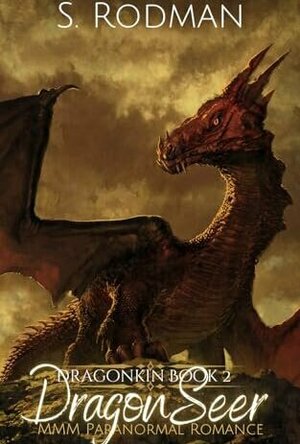
DragonSeer (DragonKin #2)
Book
Two lovers, our dragons, eggs on the way, and one cottage. It’s everything I need to be happy....
MMM Paranormal Romance Dragons
Merissa (13786 KP) rated Her Scottish Rogue (The Rebels, Rakes, and Rogues Series) in Books
May 17, 2023
This is a story of mistaken identity, historical style. Wren is abducted whilst out searching for some greens for the Inn where she works. It turns out that she has been mistaken for someone called Lady Anne, and no one believes her when she denies being Anne, but Wren. Beck has come to England at the request of his father, but longs to return to Scotland. Through mishaps and mistakes alike, these two end up married, whilst Wren has to figure out how to make Beck realise that she is not Anne, play a game to restore honour to his father's name, and dodge a murderer.
This is an easy-going story that flows well and will carry you along with absolutely no problems. I actually was more intrigued by Baron, a secondary character in this book, than I was by Beck and Wren. Not because of any fault or failing in their characters, but I just liked how he kept me on my toes. I thought that we would find out who Macey Lacey was in this book, but I now realise that there is at least one other book in this series, so I will have to wait.
Definitely recommended for all fans of a historical romance, with females not afraid to stand up for what they believe in!
* A copy of this book was provided to me with no requirements for a review. I voluntarily read this book, and the comments here are my honest opinion. *
Merissa
Archaeolibrarian - I Dig Good Books!
Jan 7, 2016
This is an easy-going story that flows well and will carry you along with absolutely no problems. I actually was more intrigued by Baron, a secondary character in this book, than I was by Beck and Wren. Not because of any fault or failing in their characters, but I just liked how he kept me on my toes. I thought that we would find out who Macey Lacey was in this book, but I now realise that there is at least one other book in this series, so I will have to wait.
Definitely recommended for all fans of a historical romance, with females not afraid to stand up for what they believe in!
* A copy of this book was provided to me with no requirements for a review. I voluntarily read this book, and the comments here are my honest opinion. *
Merissa
Archaeolibrarian - I Dig Good Books!
Jan 7, 2016
Merissa (13786 KP) rated Haven's Flame (Fires of Cricket Bend #1) in Books
May 17, 2023
As this book started, I will admit to being worried! It appeared that it was going the way of a love triangle which, although I don't hate, I do tend to dislike. However, I stayed with it and I'm glad that I did. This is an interesting and fast-paced tale, set when the West was Wild and women were buttoned up, unless you were a scarlet woman!
Haven is a strong female lead, although sometimes she does come across as a bit naive. She is only twenty years old though, so cut her some slack. Matthew, I loved. He is the strong, silent type that would probably drive me insane in real life. Because you could 'hear' his thoughts though, his reasons for behaving how he did made it understandable, even noble. Hank is someone that I didn't trust from the get-go, and I was glad when this book changed from a love triangle into something else!
Very well-written and with no grammatical or editing issues that I could see, this story flowed well and with plenty of details. Enough build-up to make the ending breathtaking. It was nice to see the main female being honest with the main male too!
I would have no hesitation in recommending this book to all fans of Historical Western Romance.
* A copy of this book was provided to me with no requirements for a review. I voluntarily read this book, and the comments here are my honest opinion. *
Merissa
Archaeolibrarian - I Dig Good Books!
Jan 9, 2016
Haven is a strong female lead, although sometimes she does come across as a bit naive. She is only twenty years old though, so cut her some slack. Matthew, I loved. He is the strong, silent type that would probably drive me insane in real life. Because you could 'hear' his thoughts though, his reasons for behaving how he did made it understandable, even noble. Hank is someone that I didn't trust from the get-go, and I was glad when this book changed from a love triangle into something else!
Very well-written and with no grammatical or editing issues that I could see, this story flowed well and with plenty of details. Enough build-up to make the ending breathtaking. It was nice to see the main female being honest with the main male too!
I would have no hesitation in recommending this book to all fans of Historical Western Romance.
* A copy of this book was provided to me with no requirements for a review. I voluntarily read this book, and the comments here are my honest opinion. *
Merissa
Archaeolibrarian - I Dig Good Books!
Jan 9, 2016
